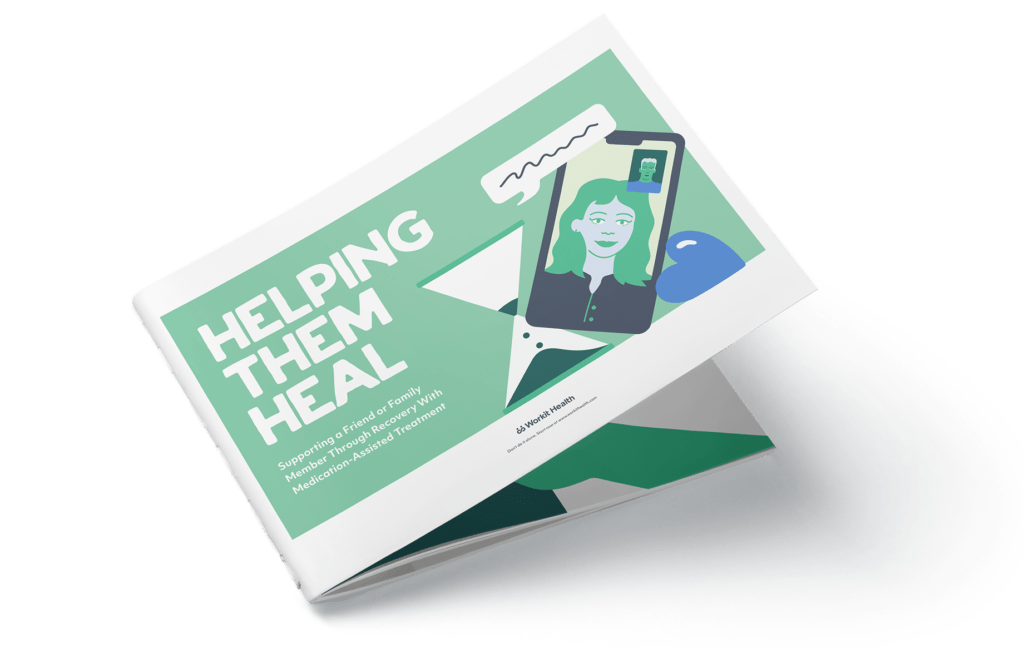It’s that time of year again: the holiday season is upon us. Though most people enjoy these few months and the involved festivities, all the togetherness and family time can be anxiety-inducing and stressful for some—especially those in recovery from a substance use disorder.
For many in recovery, the holidays can be a trigger of sorts. Perhaps it has to do with the festive spirit and wanting a drink to celebrate, or maybe the thought of being around family makes them crave alcohol as an escape.
Whatever the cause, it’s important to be aware of the people in recovery in your life this time of year. While you by no means have to eliminate alcohol from your celebration, there are a few ways you can support your loved ones in sobriety during the holidays.
1. Communicate expectations to one another.
If you are hosting a gathering and know someone in attendance is in recovery, reach out and start a conversation. This shows you are being considerate of their feelings, but also that you are taking initiative to help them prepare to be around alcohol. Simply giving a heads-up can be helpful for those in recovery, because it allows them to get a plan in place. It also demonstrates that someone went out of their way to check in and make sure they are prepared, which can make the situation feel more welcoming as a whole.
2. Have nonalcoholic drink options.
Having various drink options to offer someone in recovery is huge. It shows that you took the time to think about their presence and makes them feel welcome. Sure, water is fine. But going above and beyond that means a lot to those in recovery. If you really want to have something festive to offer, take the time to look up some recipes for punch or mocktails. Those who are sober still enjoy indulging in fancy, nonalcoholic drinks to celebrate special occasions. But remember, everyone is different. So be sure to check with them first to make sure mocktails aren’t a trigger that would make them crave an actual drink.
3. Avoid unnecessary conflict.
When someone gets sober, there are often unresolved issues that need to be spoken about, especially in the early months of recovery. If this is the case in your situation, hold off on those conversations until after the holidays pass, or at least until the party is over. Conflict and shame can be triggering for many in recovery, and could lead to a relapse for some people. Remind yourself that this time of year is about togetherness and kindness, and try your best to put differences aside, at least for the time being.
4. Talk to your loved one about having a backup plan.
Planning in advance is vital in order to avoid relapse. Take the time to talk to your loved one about what their course of action will be if they start to feel uncomfortable. Maybe this means having a ride lined up, or having phone numbers on hand to call for support if needed. Or maybe it just means having a quiet room available where they can go to take a break if need be. Whatever the case, have the conversation prior to the gathering so that you both know what the plan is. And make sure you communicate so you know if that plan has to be put into action.
5. Ask specifically what you can do to make them feel comfortable.
Sure, there are certain things that may seem obvious, like offering nonalcoholic drink options. But maybe there is something you aren’t thinking of when it comes to making your loved one feel welcome and accepted—and the only way to know for sure is to ask. Take the time to talk about what you, as the host or family member, can do to make this time of year easier for your loved one. Even if they can’t come up with anything, taking the time to ask shows that you care about their presence and about them feeling welcome, and that speaks volumes.
6. Check in throughout the day.
Once the festivities and gatherings are underway, make sure you don’t forget about the effort you’ve put in to make your loved one in recovery feel welcome. While you by no means have to babysit, take the time to check in throughout the day. This can be as simple as just asking, “You doing okay?” and opening the door for them to mention if they are struggling and need to put that backup plan into action. Sometimes it takes someone reaching out to really ask for the help that is needed, and checking in can open this door.
7. Remind yourself you can only do so much.
While it’s kind and thoughtful to do everything possible to make a loved one feel welcome, the end result is not your responsibility. If someone does not feel ready to attend a gathering, or has to leave early, that is their choice and does not speak to the effort you put forth. Sometimes, people just aren’t ready to be in certain situations. And that is OK. It doesn’t mean you failed them or didn’t do enough. And likewise, if your loved one happens to relapse, remind yourself that this is not your fault. You did what was possible to support your sober loved one during the holidays. In the end, you are only responsible for yourself and your own actions, as hard as that may be to accept at points.
As always, remember that different people handle situations in different ways. The only way to know for sure how your loved one feels about the holiday season and gatherings is to ask them. Take the time to open the door to those conversations, even though it may feel like an awkward topic to broach sometimes. In the end, both you and your loved one will likely be glad you did so.





